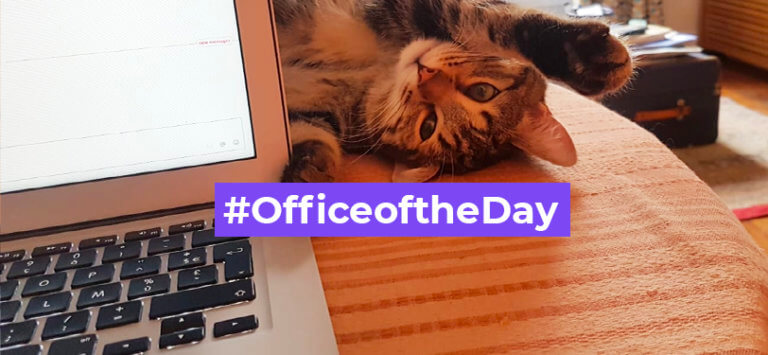Did you know that 85% of jobs that will exist in 2030 haven’t been invented yet? In a world where the job market is changing at breakneck speed, it’s ever so important to keep learning new skills. In fact, improving your skill set can help you achieve your professional goals; such as landing your dream job, earning a promotion, or switching careers. “Easier said than done”, you say? Not if you follow these 5 easy steps.
Define your “future-you”
Before we dive into the ‘how to’ of acquiring and mastering new skills, it’s worth taking a moment to define what your career goals are. Ask yourself: who do you want to become? Then you need to think about how you will grow into that person. What are the habits, disciplines and skill sets you will need to attain mastery in that position? Perhaps you are a project manager and you would like to manage a team in the future, but you lack the leadership skills. Or maybe you are a developer and you would like to become an IA Engineer but you don’t know much about IA.
If you are interested in switching careers but you are not quite sure what skills you will need to jump into that next role, don’t worry. Start by reviewing job descriptions, reading articles, listening to podcasts, watching videos…This will give you a better understanding of the job/position itself, the job-specific skills you will need and the transferable skills you already have. Speaking of which… What skills DO you have?
Know yourself
This might sounds obvious but, identifying what you are good or less good at can sometimes be the hardest thing in the world.. Why? Because we tend to be the worst judges of ourselves. If you are struggling to define your strengths and weaknesses, you can take a skills assessment test or speak with a career coach/counselor.
You can also survey your superiors, colleagues or even friends or family to know more about your strengths and areas for improvement. But remember: it is important to seek feedback from people who will give you honest critiques rather than automatic praise (no matter how satisfying it might be for your ego!).
Here are a few other useful ways to determine your current skills:
- What do you enjoy doing? The tasks that come easily to you or that you enjoy doing often translate into useful skills. For example, being a sociable person can mean you have great communication and interpersonal skills. Or if you enjoy traveling and meeting people from different nationalities, it might imply that you are curious and have good adaptability skills.
- What do you receive praise or compliments on? What skills have your colleagues or superiors noticed or complimented you on? When do people come to you for help? These are good indications of your talents. Perhaps you created a mind-blowing Excel spreadsheet that improved your team’s workflow or you successfully resolved a conflict with a difficult client.
- What previous accomplishments do you have? Think of all the small or big successes in your career. Like the time you won a client thanks to your great communication and problem solving skills or when you got promoted to team leader because of your amazing listening and management skills. Pay close attention to all these accomplishments as they demonstrate your skills.
At the end of the day, you need to have a clear picture of what your hard and soft skills are at the present time, which of those can be transferred to your new job and which competencies you will need to develop to get to where you want to be in the future. Also, doing this self-assessment exercise will allow you to understand where your natural talents lie and whether your career aspirations indeed fit with those.
Set clear, realistic goals
Once you’ve identified your strengths and weaknesses, it’s time to set tangible and realistic goals for yourself. Don’t make them too big or insurmountable. This often has a demotivating effect or stops you in your tracks before you even start!
Acquiring and mastering new skills involves setting realistic, positive and challenging goals that will inspire you each and every day. To make it less overwhelming, you can break down your long-term career goal into smaller, short-time goals. Then set a reasonable timeline, with a beginning and an end date, to achieve each one of them.
Get learning
Ready to roll up your sleeves and unleash your brain power? Let the learning begin. But that doesn’t necessarily mean reliving your old school days. There are different ways in which you can acquire and hone skills, like for example:
- Take advantage of company training. If you are currently employed, maybe your company offers professional development opportunities such as training programs, workshops, and conferences. Make the most of these opportunities to learn new skills and stay up-to-date with industry trends.
- Enroll in a degree program. Obvious, right? And it is probably the most effective way to learn hard skills – like programming, web development or AI engineering. But perhaps your schedule doesn’t allow you to attend traditional training programs, or there are none available in your area. If so, e-learning is a great alternative. All you need is a computer and an internet connection.
- Be an autodidact learner. If you are more of a self-taught kind of person, you might prefer to read books, attend webinars, listen to podcasts or even watch YouTube videos. There is plenty of inspirational material out there that can help you improve your skills on your own – it just takes a bit of self-discipline.
- Seek out a mentor. Skill mastery can also be attained by having someone in your corner who will offer you guidance and hold you accountable. Try to find a mentor who excels in the skill you want to learn, whether it is leadership, project execution and even becoming a coach. It’s all about finding that person who will inspire you, challenge you and help you grow.
When it comes to learning there is no one “best” way. It’s up to each and every one to find the right learning approach for them. But while gaining theoretical knowledge and hearing advice from inspiring role models are valuable ways to learn, you won’t be able to master your new skills until you actually put them into practice.
Take action
Although theory may form the basis, acquiring and mastering new skills ultimately involves putting theory into practice. Learning by doing if you wish. Here are a few ways in which you can practice your skills:
- Participate in job shadowing. For those you don’t know, job shadowing involves following a professional while they perform their job duties and learning about their skills. If you are able to find someone in your network that you can follow for a few days, you will be able to see what the day-to-day responsibilities of that profession are and what skills are brought into play.
- Volunteering. Volunteering is a great way to exercise your skills and apply them to a cause you are passionate about. For example, if your goal is to practice your web development skills, you can volunteer to build and optimize a non-for-profit or a charity’s website. If you want to hone your communication and event planning skills, why not volunteer at a community center?
- Take part in contests. Many companies like to organize competitions to allow people to showcase their skills. Whether it is a drawing contest or a hackathon; this can be a wonderful (and fun) opportunity to test out your skills, meet other talented people, all while working on practical projects.
In today’s ever-changing world, it has become increasingly important to regularly update your skill set to stay ahead of the curve. And while learning new skills can be intimidating as it involves change, it is not as hard as it sounds. With a bit of method, patience and motivation, you can master the skills you need to achieve the career move you’ve always wanted. But if there was one skill everyone should focus on acquiring, regardless of their industry, it is mastering the ability to learn. As Einstein used to say: “I have no special talent. I am only passionately curious.”









